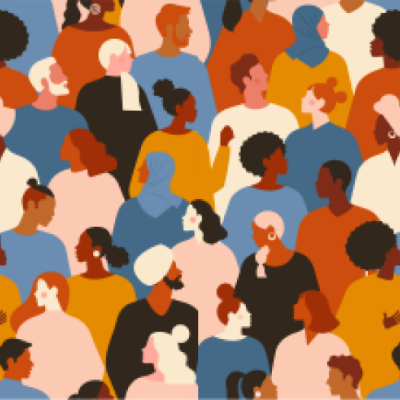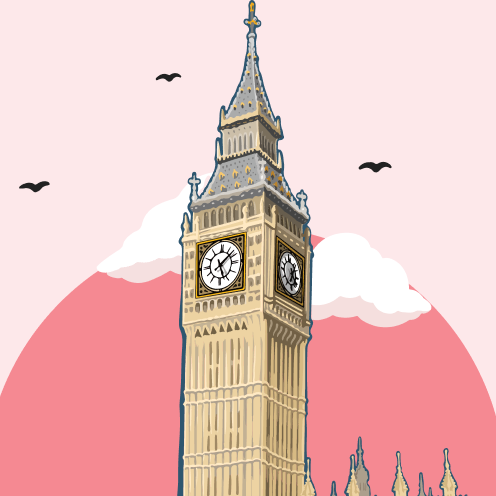Black and Asian people who spot cancer symptoms are taking twice as long to be diagnosed as white people, a shocking new study shows.
Research by Bristol Myers Squibb (BMS) and Shine Cancer Support shows that people from minority ethnic backgrounds face an average of a year’s delay between first noticing symptoms and receiving a diagnosis of cancer.
These groups report more negative experiences of cancer care than white people, limited knowledge about the diseases and lack of awareness of support services, which all contribute to later diagnostic rates.
“In a year that’s revealed that the UK’s cancer survival lags behind comparable countries, I am saddened but unsurprised that people from minority ethnic groups face additional hurdles that delay their diagnosis.” said Ceinwen Giles, co-ceo of Shine Cancer Support.
“We know that catching cancer earlier saves lives, yet with year long waits for some people, collaborative efforts between health leadership, advocacy groups and the pharmaceutical industry are required.”
The campaign’s supporting report, 1,000 voices, not 1, highlights a number of stark findings from a survey of over 1,000 people with cancer across the UK.
People from ethnic groups were more likely to attribute their symptoms to other conditions (51 per cent vs 31 per cent) and not take their symptoms seriously (34 per cent vs 21 per cent), compared with white people, the data shows.
They are also more likely to experience difficulty seeing a GP compared to white individuals, both in terms of getting an appointment (25 per cent vs 16 per cent) — including due to long wait times and few slots being available — and in being able to make time for it due to work (18 per cent vs 4 per cent).
A higher proportion of people from minority ethnic groups worry about wasting NHS time and resources (52 per cent vs 42 per cent) and do not want to be seen as wasting their GP’s time (32 per cent vs 18 per cent), compared with white people.
Delayed between cancer diagnosis and treatment may raise the risk of death by around 10 per cent.
Simeon Green, 60, was diagnosed with prostate cancer in 2015, at the age of 49, over a year after first experiencing symptoms.
Unable to claim benefits, and at the same time supporting his partner who had been diagnosed with breast cancer six months earlier, the pair ended up selling their belongings in order to keep a roof over their heads.
The Wolverhampton resident’s compromised eligibility to live and receive free treatment in the UK meant he was unable to claim benefits and risked having to spend £42,000 for his cancer treatment.
At the same time, Mr Green was fighting deportation as he was caught up in the Windrush scandal and accused of not having proper documentation.
Speaking to The Independent, Mr Green, who’s still awaiting compensation from the Home Office, said: “Black men are more likely to develop prostate cancer and younger; these risks are often ignored by healthcare practitioners and this leads to more deaths.
“When I received my diagnosis, I ended up planning my funeral because I felt sure I was going to die. On top of this battle, I was living in fear every time the door knocked – that was a part of my life – and feeling scared that the Home Office was going to drag me off to a detention centre for deportation. This dragged on for nine years and a day.”
Mr Green, who runs a support group for other Black men affected by cancer, added: “We’ve seen NHS campaigns about prostate cancer and how it generally affects men, but the heightened risk that Black men face isn’t often highlighted.
“Another problem is the lack of trust in doctors within our communities, plus the lack of Black men being invited to participate in clinical trials.
The study coincides with the launch of a new campaign, Cancer Equals, which is geared towards helping to “understand and help address the many possible reasons for inequalities in Britons’ experiences of cancer”.
According to research, reasons for delays in diagnoses include challenges accessing services, healthcare practitioners not taking patients’ symptoms seriously and low awareness of cancer symptoms.
Precious, a 45-year-old British woman of Nigerian heritage living in North London, can personally attest to low awareness about cancer and doctors dismissing warning signs.
She received her diagnosis in A&E after collapsing in a train station following multiple GP appointments in which her symptoms were put down to stress.
“I had all the symptoms for four months and I’ve been to the GP several times – she kept saying I was stressed and put me on medication. So in my wildest dreams, I didn’t expect the word cancer to come up.”
Prior to her diagnosis with chronic myeloid leukaemia, at the age of 33, Precious didn’t know much about cancer and its associated symptoms; it was never spoken about within her family and was considered “shameful”.
“In my culture, sometimes people say sickness is a consequence of not doing something right or it being a curse from God for not living a good life; someone suggested it may have been because I didn’t pay my tithes in church,” Precious told The Independent.
Shortly after her diagnosis, Precious was astounded by a care assistant’s suggestion that cancer may have come about as a result of someone working black magic on her.
“One time I was in hospital, my tummy was hurting really bad and they sent me for an x ray,” she explained.
“A fellow Nigerian woman, a care assistant who learned I’d recently returned from a trip to Nigeria, accompanied me to the X-ray and said: “Sometimes if you steal somebody’s money or land or husband, they can throw Obeah at you and it doesn’t matter what part of the world you’re in, it will hit you’.”
“If you have multiple people, a collective group of people thinking that way, there’s no way that you’re going to want to open up about your cancer,” she added.
Both Mr Green and Precious now work to support people who have had a cancer diagnosis and raise awareness about the disease’s prevalence.
Precious believes strongly in sharing her story to help other people, especially those from cultures that don’t often speak about cancer, to feel safe and empowered to get the help that they need.
“If I can help at least one person, then it’ll be worth it,” she said.
Source: independent.co.uk



